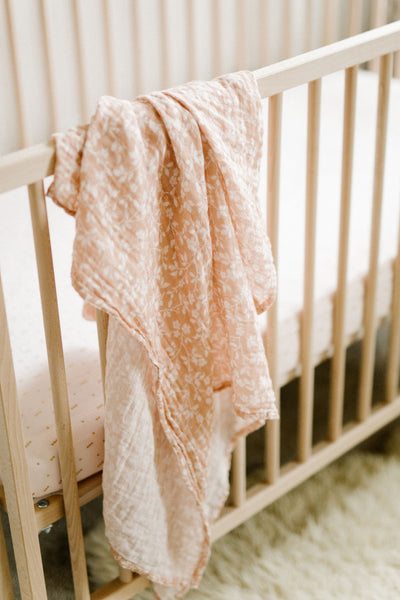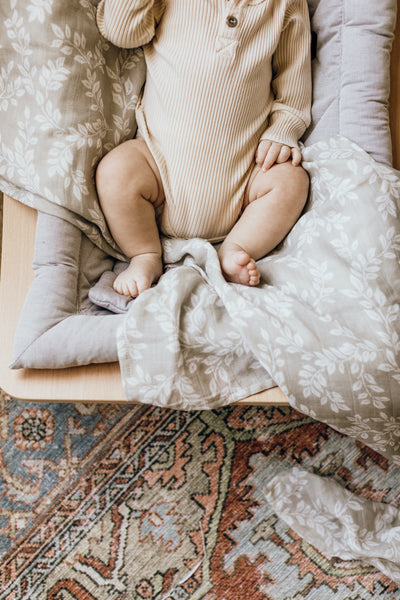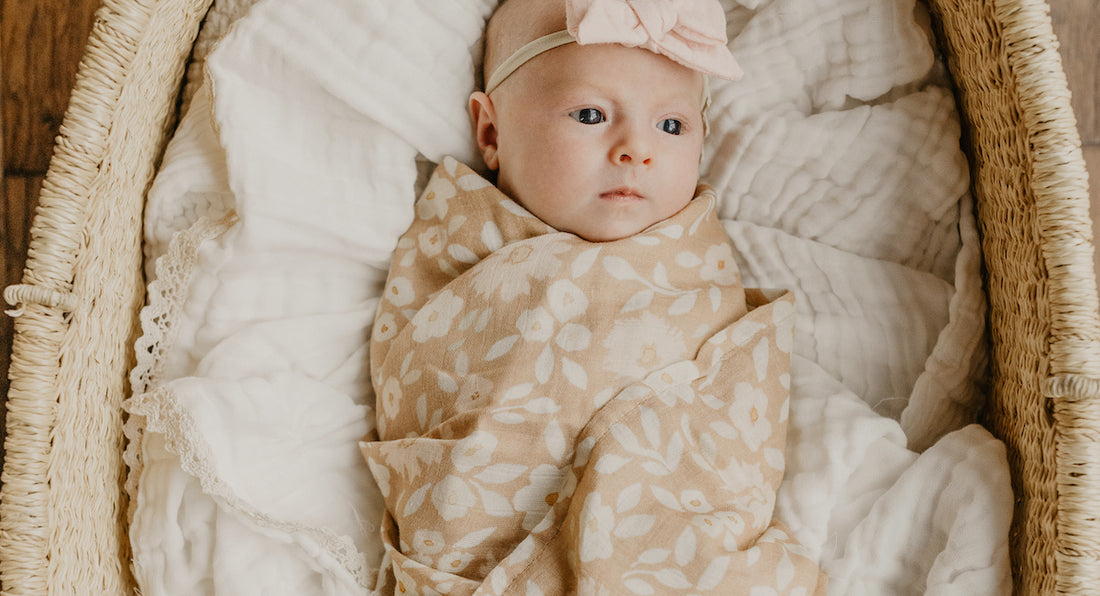Bringing a new baby into the world is an exciting time, but it can also be overwhelming, especially when it comes to preparing for their arrival. With so many baby products on the market, it's easy to get lost in a sea of options. That's why we've created this simple guide to must have baby items – to simplify the process for new parents and provide a clear roadmap for what you truly need.
Why Stick to the Essentials?
Before diving into our list, let's talk about the importance of sticking to the essentials. While it's tempting to buy every cute outfit and gadget available, the truth is that babies don't need much in their early days. By focusing on the essentials, you'll not only save money but also avoid cluttering your home with items you won't use. Plus, starting with the basics, the most important necessities for a newborn baby, is perfect for parents on a budget or those feeling overwhelmed by the endless options.
Creating Your Baby Registry
For soon-to-be parents, creating a baby registry can feel like a daunting task. Where do you even begin? Our guide serves as an excellent starting point for your registry, ensuring you include all the essential items while avoiding unnecessary extras. Whether you're a first-time parent or adding to your family, this list will help you feel confident and prepared as you embark on this new journey.
Our List of Must Have Baby Items
Now, let's get down to business. Here's our curated list of must-have baby items, carefully selected to meet your baby's basic needs without overwhelming you with unnecessary choices. Keep in mind that this isn't an exhaustive list, but rather an outline of the very basic things you would need when bringing a baby into your home.
1. Sleep Essentials:
When it comes to sleep, ensuring your baby has a safe and comfortable place to rest is crucial. As you sleep, shower, or need to put baby down, having a secure resting place becomes even more essential. Here are the baby essentials you'll need.
Crib and Crib Mattress: A crib provides a secure sleeping environment for your baby. Opting for a crib over a bassinet offers a long-term solution as your baby grows.
Bedding: Make sure to have fitted crib sheets and a crib mattress pad to keep your baby's sleeping area clean and cozy.
Blankets: Swaddling or receiving blankets are versatile essentials. They're handy for wrapping your baby, drying them after bathing, placing under them during diaper changes, or providing a quick shield from the elements when outdoors. We love cotton muslin blankets because of their versatility in being able to be used for everything from a burp rag, to a bib, to a nursing cover or a swaddle.

2. Diapering Supplies:
Diapering is arguably one of the most important aspects of caring for your baby. Here's what you'll need:
Diapers: Whether you opt for cloth or disposable diapers, having an ample supply is essential for keeping your baby dry and comfortable.
Baby Wipes: While optional, baby wipes are convenient for cleaning your baby during diaper changes. If you prefer, you can use a sink with running water and a soft cloth as an alternative.
Diaper Rash Cream: While not immediately necessary, having diaper rash cream on hand can be a lifesaver in case your baby develops a rash. Timely diaper changes can help prevent rashes, but it's good to have cream available for emergencies.
Diaper Bag: While optional, this baby product provides a convenient place to store all your baby's essentials when you're on the go. You can also use a large purse or any bag that fits your needs.
3. Feeding Equipment:
Feeding your baby is a fundamental aspect of their care, whether through breastfeeding or formula feeding. Here are the essentials you'll need:
Burp Cloths/Receiving Blankets: Even if you plan on exclusively breastfeeding, having burp cloths or absorbent receiving blankets handy is essential for keeping things clean during and after feeding. Placing a cloth under your baby's chin can help absorb spills during feeding and be used for burping afterward. Plus it helps eliminate the need to buy baby bibs since you can just use a blanket.
Bottles: If you're formula feeding or occasionally pumping breast milk, baby bottles are necessary for feeding your baby food. Make sure to choose bottles that are suitable for your baby's age and needs.
Formula: If you're not breastfeeding, formula is a must-have item for feeding your baby. Choose a formula that is appropriate for your baby's age and any specific dietary needs.
Breast Pump: A breast pump can be helpful for mothers who need to express milk or maintain their milk supply. However, many mothers can successfully breastfeed without needing to pump.
Pacifier (Optional): A pacifier can be a handy tool for soothing your baby, especially during car rides or when you can't immediately pick up your baby. It provides temporary relief and can help calm your baby when other soothing methods may not be available.
4. Baby Gear and Transport:
Ensuring your baby's safety and comfort while on the go is essential. Here are the must-have items for transporting your little one:
Car Seat: This is perhaps the most critical item on the list, as you won't be allowed to take your baby home from the hospital without a properly installed infant car seat. Make sure to choose a car seat that meets safety standards and is appropriate for your baby's age and size.
Stroller (Optional): While not absolutely necessary, a stroller can greatly simplify outings by providing a safe and convenient place for your baby to sit or lie down. It also frees up your hands for carrying your diaper bag or other essentials.
Baby Carrier (Optional): If you prefer not to use a stroller or need a more hands-on approach to carrying your baby, a baby carrier is an excellent option. It allows you to keep your baby close while keeping your hands free for other tasks.
Baby Bouncer or Rocker (Optional): While not essential, a baby bouncer or rocker can be a lifesaver when your baby needs soothing. These devices provide gentle motion that can help calm a fussy baby, and they also offer a safe place to set your baby down when you need a moment to yourself.

5. Baby Clothes:
Babies have a knack for making messes, whether it's through diaper blowouts or spit-up episodes. While it's tempting to stock up on adorable outfits, it's more practical to keep it simple. Here's what you'll need:
Bodysuits (Onesies): These are essential for your baby's wardrobe. They're comfortable, easy to put on and take off, and they keep your baby's torso covered. Look for ones with snaps at the bottom for easy diaper changes.
Pajamas (PJs): Opt for footed bodysuits or sleepers for bedtime. These one-piece outfits keep your baby cozy and warm throughout the night. Choose options with zippers for quick changes during nighttime diaper duty.
Hat: Newborns lose a lot of heat through their heads, so it's important to keep them warm. Many hospitals provide a hat for newborns, but having an extra one on hand is helpful, especially in cooler weather.
Socks: Keep your baby's feet warm and cozy with a pair of socks. Newborns' feet can get cold easily, so having a few pairs on hand is essential, especially during the colder months.
Remember, you don't need to go overboard with baby clothes. Having 4-7 outfits in newborn sizes or 0-3 months should suffice, allowing you to manage without needing to do laundry every day. Prioritize comfort and functionality when selecting baby clothes, and don't forget to have fun with the occasional cute outfit for special occasions.
6. Health and Safety Products:
When it comes to your baby's health and safety, it's essential to be prepared with the right tools and products. Here are the must-have items:
First-Aid Kit: A well-stocked first-aid kit is indispensable for handling minor cuts, scrapes, and other emergencies. Ensure it includes nail clippers for trimming sharp nails, a thermometer to monitor your baby's temperature, and other basic medical supplies. Additionally, consider including the following essentials: Diaper rash cream, a soothing remedy to help prevent and treat diaper rash, providing relief for your baby's delicate skin. An infant fever reducer is also crucial, providing a safe means to lower your baby's temperature in case of fever.
Shampoo/Soap/Body Wash: Babies have delicate skin that requires gentle care. Opt for baby-friendly shampoo and soap that are free from harsh chemicals and fragrances. These products will help keep your baby's skin soft and smooth without causing irritation.
Baby-Friendly Laundry Detergent: Babies' skin is sensitive to harsh chemicals found in regular laundry detergents. Invest in a baby-friendly laundry detergent that is hypoallergenic and free from dyes and perfumes. This will ensure that your baby's clothes and linens are clean and safe against skin irritation.
While there are many other health and safety products available like outlet covers, baby baths and baby proofing items, we've focused on the essentials for newborn babies to avoid overwhelming you. These items will help you keep your baby clean, comfortable, and protected, giving you peace of mind as you navigate parenthood.
Conclusion: Navigating the world of baby products doesn't have to be overwhelming. By focusing on the essentials outlined in this guide, you can feel confident that you're providing everything your baby needs while avoiding unnecessary clutter and expense. Whether you're a first-time parent or a seasoned pro, our must-have baby items list is here to simplify the process and help you prepare for this exciting new chapter in your life.
Related Articles:
The Ultimate Guide to Baby Registries: A Starting Point for New Parents.
Establishing a Calming Bedtime Routine for Your Baby
First Three Months with a Baby: Activities for Milestone Development
What to Expect When Nursing Your Newborn

